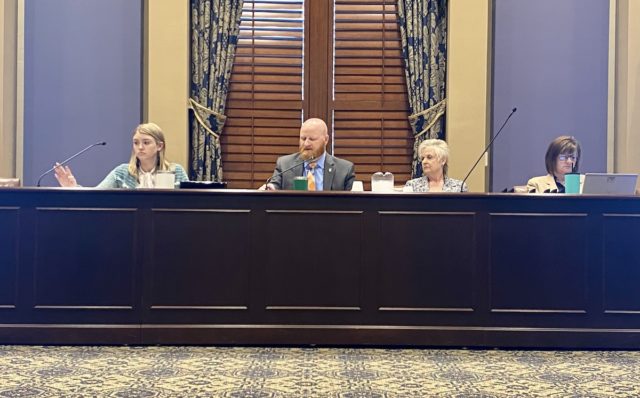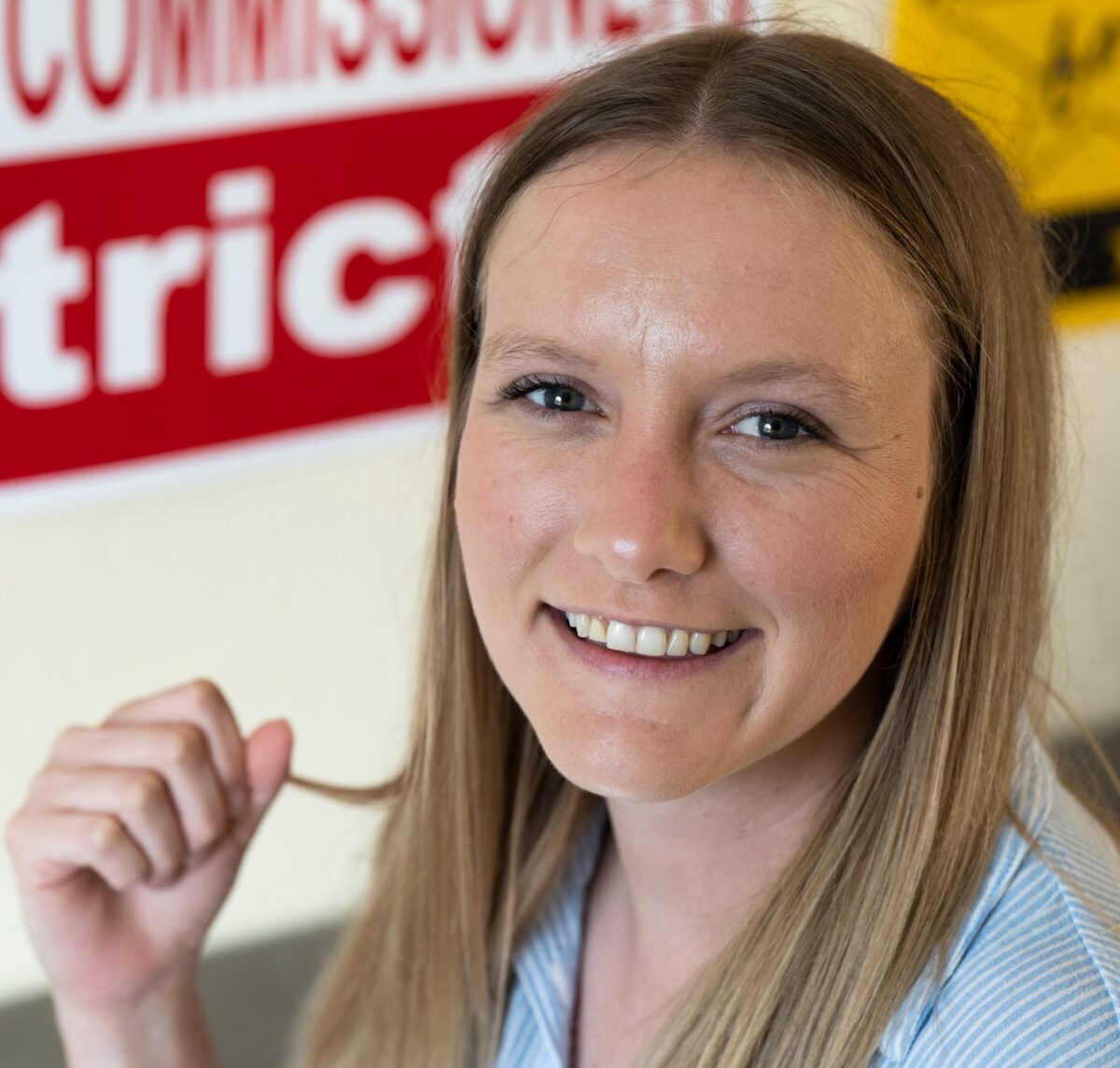
The Senate half of the Oklahoma Legislature’s new Joint Committee on Administrative Rules held its first meeting this afternoon, with members debating the definition of the word “course” while discussing proposed rules from the State Department of Education regarding HB 1775.
Lawmakers passed HB 1775 last year to prohibit Oklahoma public school teachers from teaching that “any individual, by virtue of his or her race or sex, is inherently racist, sexist or oppressive, whether consciously or unconsciously,” that “any individual should feel discomfort, guilt, anguish or any other form of psychological distress on account of his or her race or sex” or that “meritocracy or traits such as a hard work ethic are racist or sexist or were created by members of a particular race to oppress members of another race.”
Sen. David Bullard (R-Durant) authored the bill and said its goal was to prevent the teaching of critical race theory, even though the college-level concept is not named specifically in the measure. The bill required the OSDE to promulgate rules for reporting and responding to potential violations of the new law.
“The emergency rules went in back during the interim. They were widely accepted but lack a great deal of details in implementation, so the schools have enough details in order to carry out what the expectation of that legislation was,” Bullard told Senate JCAR members. “I draw contention to the definitions where it defines a ‘course.'”
Bullard said “academic or non-academic programs and extra-curricular activities” had been included in the bill’s draft and that the OSDE’s definition of “course” could leave the door open for school districts to violate the law.
The Senate committee ultimately voted to lay over a vote on the administrative rules for HB 1775, as well as rules submitted by the Department of Commerce related to the Filmed in Oklahoma Act Program, until next week’s meeting.
Senate JCAR Vice Chairwoman Julie Daniels (R-Bartlesville) said after the meeting that she wants the committee to be able to mull the rules for HB 1775 over for a week and that she will make a recommendation to either approve or disapprove the rules at the next meeting.
“The way I’m feeling today, I’m going to recommend we approve them,” Daniels said. “As I discussed with the Senate author, maybe he needs to go back and rework some of the language of the bill. We have agencies who refuse to promulgate rules after we pass a law. This agency did what they were supposed to do. For me, even if I wanted more in the rules, they’ve done their due diligence, and out of respect for that, I think we should approve them.”
‘That’s not language in the bill’
Senate Minority Leader Kay Floyd (D-OKC) questioned Bullard about his definition of “course,” pointing out that a definition was not included in HB 1775. At issue was whether the proposed rules needed to pertain to coaches and other instructors of extra-curricular activities.
“That’s not language in the bill. That’s not language that was vetted by committee in the House and Senate,” Floyd said. “Extra-curricular activities is a huge, huge area. By not having that discussion before, how can we put it into the rules when lawmakers didn’t have a chance to vet that term?”
Sen. Adam Pugh (R-Edmond) said Bullard’s point, and legislative intent, was being missed.
“If we could kind of step back for as second, because we’re playing the game we play where we get involved in semantics when we know what the legislative intent was with any particular piece of legislation,” Pugh said. “I agree that words matter. If the legislative intent was to ensure that [critical race theory] is not taught in schools, then are we maybe focusing on the wrong thing, which is the definition of the word ‘course’? Is it maybe more important that it comes down to whether or not it’s a school-sanctioned event?”
State Department of Education legal counsel Brad Clark said department staff had gone back and forth on the definition of “course” themselves in the emergency rule making phase.
“As the attorney for the department, I always go back to statutory language,” Clark said. “Looking at the language in the statute, the word that appears is the word ‘course’. I think in the revisions that had been proposed for permanent rule making, I believe we’ve extended that as far as we can go by tying it back to the word that’s in the statute.”
After the meeting, Bullard said he thinks the permanent rules from the OSDE have too many gaps and holes in them. However, Bullard said accepting the proposed rules or sending them back to the OSDE for revisions is up to the committee, not him.
“We would’ve probably been better to be broad and say ‘anything under the purview of the school, they can’t teach it’ because that’s the intent of the language,” Bullard said. “I do disagree with them that they don’t have the statutory authority. I think that’s an excuse to not have to do something.”
‘We’re still trying to stand it up’
The Joint Committee on Administrative Rules was created by SB 913 last year in an effort to ensure a more transparent and thorough process for state agencies’ administrative rules to be approved or appealed. The Senate and House versions of JCAR have the ability to meet separately or together. On Wednesday, the Senate JCAR met, but the House JCAR did not.
Senate members of JCAR were appointed in November by Senate President Pro Tempore Greg Treat (R-OKC), while Representatives were appointed to House’s portion of JCAR by Speaker Charles McCall (R-Atoka).
“We’re still trying to stand it up. I think it could be a great committee,” Rep. Terry O’Donnell (R-Catoosa) told NonDoc. “At the end of the day, this is not what the rules provide for, but I think at the end of the day it could be a committee that what JCAB is to the budget JCAR could be to policy.”
O’Donnell said he is serving as the House JCAR’s chairman, although the House website lists other members as leading the new committee. He attended Wednesday’s meeting of the Senate JCAR to observe.
Earlier this week, O’Donnell said JCAR could ultimately end up being a powerful legislative tool that could help keep the Joint Committee on Appropriations and Budget focused on finances.
“It’s like, ‘Those don’t have anything to do with the budget. Why are we doing that?’” O’Donnell said of last-minute policy bills that appearing in JCAB near the end of sessions. “Well, JCAR could be the equivalent of that. We’d have to change the dynamic of it.”
In the meantime, the two chambers are simply trying to figure out how JCAR will handle this year’s slate of pending administrative rules, which agencies had to pass before April 1 to qualify them for approval or disapproval by lawmakers this legislative session.
Senate JCAR Chairman Sen. Brent Howard (R-Altus) said there are five actions that can be taken by motion through the committee.
“That’s approve, approve in part, deny, basically deny with recommendations or allow the agency to review,” Howard said.
During Wednesday’s meeting, Senate JCAR members did vote to approve a slate of proposed administrative rules for a laundry list of agencies:
- Board of Nursing
- State Banking Department
- Board of Veterinary Medical Examiners
- Horse Racing Commission
- Funeral Board
- Grand River Dam Authority
- Department of Commerce
- Aeronautics Commission
- Employment Security Commission
- Department of Environmental Quality
- Department of Mental Health and Substance Abuse Services
- Board of Tests for Alcohol and Drug Influence
- Department of Wildlife Conservation
- District Attorney’s Council
- Secretary of State
- Department of Mines
- Insurance Department
- Workers’ Compensation Commission
“The rules that are on the consent agenda are ones that have been reviewed by members of this committee and submitted back to myself and staff,” Howard said. “If we take action for approval on this, what we’re going to do then is throw them into a Senate Joint Resolution that we’ll vote on at the next scheduled meeting.”
John Estus, spokesman for McCall, said it could take a while to get the new committees running at full speed.
“The joint chairs are working through the mechanics,” Estus said. “Taking a session or two to get the process right and running optimally has been the anticipation all along.”






















